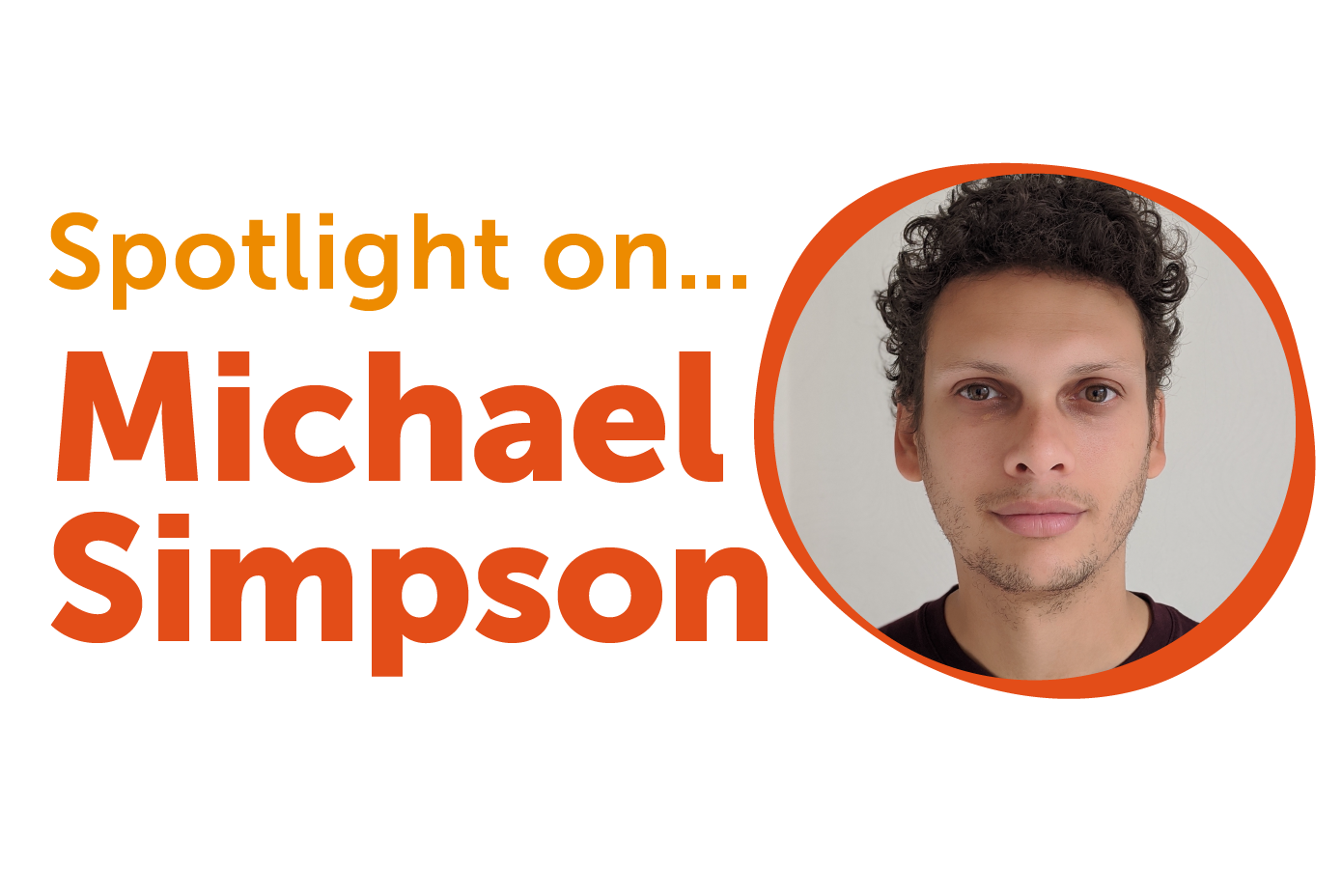“Simple things like love and care can give children the best start in life”

Michael Simpson, Theirworld’s early childhood development research and policy manager, talks about supporting and investing in the youngest and most vulnerable children.
Every child needs the best start in life. That’s why it’s one of the three main pillars in Theirworld’s mission to end the global education crisis.
With 90% of brain development happening in the first five years of life, early childhood education and other early years investments are the foundation for a child’s growth and developmental potential. But 175 million children are not enrolled in early childhood education.
In the latest in our Spotlight On … series, we talk to Michael Simpson, Theirworld’s early childhood development research and policy manager. Michael recently took part in Theirworld’s 20×20 Challenge to explain why investing in early childhood education in emergencies is so vital.
Why is supporting early childhood education important?
Theirworld’s focus is on ensuring children get the best start in life. We know that two years of high-quality pre-primary education increases a child’s chances of achieving basic standards in literacy and numeracy and increases the chances of them completing primary school.
What’s surprising – and frustrating, given that 175 million children are still denied the opportunity to attend pre-primary – is that these insights aren’t new. Key concepts that are still being debated today are actually more than 100 years old.
The German educationalist Friedrich Fröbel first developed the concept of kindergartens – which literally translates to children’s garden – in the 1840s. Elizabeth Harrison was writing about professional standards for early years educators in the 1890s.
What are the biggest obstacles facing early childhood education?
It comes down to a lack of investment, which in turn is undermined by the absence of clear political will. It is a relatively inexpensive proposition, requiring governments and donors to invest just 10% of their education budgets on the early years. It is also a progressive policy in the truest meaning of the term. Properly implemented, it reaches all children in society irrespective of social status, gender, geography and ethnicity.
Why is early childhood support crucial in the early stages of humanitarian responses?
We know how critical early childhood is for children. Adverse experiences like neglect, violence and abuse can lead to children experiencing overwhelming stress and anxiety. The impact of war, natural disasters and displacement are only going to amplify the impact of these adverse experiences.
How can young children be supported in crisis and conflict settings?
Children are incredibly resilient and have an amazing capacity to bounce back. This is why “trauma-informed” approaches are so important. By building in psychosocial support by trained practitioners into playful learning experiences, young children can be supported to overcome traumatic experiences.
Organisations such as Amma (formerly the Refugee Trauma Initiative) are great at this kind of work. Its Baytna programme, which means “our home” in Arabic, is an early years programme in Greece that provides emotional support to refugee families alongside high-quality early years education. It can be created in a variety of environments, including children’s centres, kindergartens or refugee camps. It centres both children’s learning needs alongside a focus on caregivers, providing families and children with the tools to address symptoms of trauma and toxic stress.
What do young children need to have the best start in life?
It sounds simple but love and care, a good diet and health interventions like postnatal care and vaccinations, and social protection interventions like birth registry and cash transfers for parents are all very important.
What has been your biggest achievement at Theirworld?
Our target that donors and governments invest 10% of their budgets on pre-primary education is now a widely accepted benchmark. To truly count as an achievement, it must be followed through with tangible investment – but having a clearly understood and agreed aim is a good starting point.
We have also done a lot of unique work at the country level, including a bespoke advocacy campaign in Kenya targeting regional decision-makers. The country has a highly-sophisticated devolved governance system which delegates investment decisions on pre-primary to the 47 county governments. This led to us developing a technical model for advocacy that provides local campaigners with the tools to influence important levers for change, such as local planning and budgeting.
What keeps you motivated when challenges seem too large to overcome?
Taking on big issues such as ending the learning crisis can feel overwhelming at times. We’re talking about tens of millions of children who are denied the right to education, finding themselves at the margins of society through no fault of their own.
As advocates, the best we can do is think strategically about the change we can achieve and break down our work into realisable (while still ambitious) objectives. This is also how I approach my everyday work. The satisfaction of achieving one activity is the best spur for moving onto the next task. In time, this all adds up.
What is the greatest lesson you have learned outside the classroom?
I started my career in a drug treatment centre, working with lots of people who had experienced challenging childhoods, particularly in the early years of their life. A lot of the staff had direct experience of addiction, homelessness and prison, proving that life is about second chances. With belief, patience and a supportive community, people’s circumstances can change for the better.